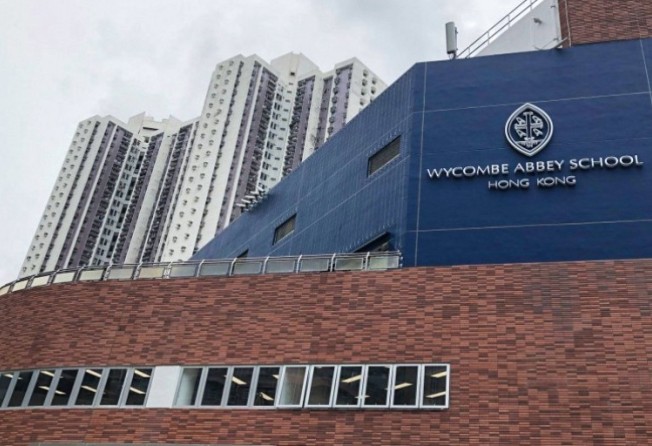Hong Kong’s land shortage is forcing international schools to set up campuses in old commercial buildings like disused shopping centres
- Finding the right space is a challenge for schools, which have specific requirements such as large floor space, playing fields
- Some have converted former shopping malls as they try to tap the market, in which demand has remained strong amid months of civil unrest

Privately owned international schools looking for space to expand into Hong Kong are being forced to open campuses in places like converted shopping malls because of a lack of land, according to property agents.
John Mortensen, senior director for education services, Greater China, at JLL, said school providers and investors in education still want to come to Hong Kong despite the political crisis that has rocked the city and damaged its reputation. There is strong demand from local families able and willing to pay for their children to enjoy a high-quality education from a respected overseas school.
“But the problem is availability of spaces,” he said.
There are at least 11 international schools looking for space to set up new campuses in Hong Kong, according to market watchers.
Mortensen said six providers have approached JLL.
“If I have any available spaces come up, I will have a pool of potential candidates to jump at the opportunity,” he said.
Ideally, most international schools want 30,000 to 40,000 square metres to accommodate 1,000 to 1,500 students, he said.
But some have had to lower their expectations, sacrificing features like large playing fields and classic architecture, after acknowledging the difficulty of finding land in Hong Kong.
“We are seeing an increase in the number of international schools taking up spaces in existing assets designed for commercial use and converting them into campuses,” he said.
British Wycombe Abbey opened its first campus at the former Tin Wan Shopping Centre at Tin Wan Street, Aberdeen, in September.
Invictus International School Hong Kong plans to open its second campus in a shopping mall at Tai Tam in the third quarter of 2020.
Mortensen said other schools have adopted an “urban model”, making space-saving adaptations like having their playing fields on the roof.
Lawrence Wan, senior director of advisory and transaction services for retail at CBRE, said:
“There are overseas private education institutions looking for the right opportunities to enter Hong Kong, attracted by a strong demand for quality education from local parents as they are able and willing to afford the costs to help their children gain international exposure.
“However, looking for the right space is a challenge for the schools, which have specific requirements such as large floor space, outdoor space and light-filled environment, particularly with Hong Kong’s high rental levels.”
The expansion of privately owned international schools has gained speed since the government stopped allocating sites for them in 2015.
That policy shift was based on a government study which highlighted there had been no shortage of international school places for foreign passport-holders in recent years.
There are 52 international schools in Hong Kong, of which 40 per cent are privately owned, according Legislative Council (Legco) figures for 2017-2018.
The median annual tuition fees charged by primary schools was HK$118,600, while for secondary level it was HK$157,800, according to the Legco paper.
International schools can apply for special government grants to buy land, as long as they fill at least 80 per cent of their places with non-local children.
Independent public schools have no such restrictions, meaning they can cater for the increasingly affluent local student market. But they do have to buy or lease space for their campuses, meaning there is a growing demand for such property.
Stan Tang, chairman of the privately run Stan Group and the son of the “king of shops” Tang Shing-bor, has also emerged as one of a number of local property investors hotly pursuing the public school market.
He plans to bring a major British international school brand into the nine-storey Riviera Plaza in Tsuen Wan, which his family bought for HK$823 million in 2015.
Providers of international school education are increasingly interested in entering second and third-tier mainland Chinese cities too, said Mortensen.
He is advising an international school looking for 3.5 million square feet to set up a campus in Hangzhou.
Investors such as family office are attractive in investing in education as it provides long term stable return, he said.
In 2016 a Hong Kong education fund, Full Circle, formed a joint venture with St Bees School in South England to open a campus in Shijiazhuang in September 2020. The campus can accommodate 2,000 students.